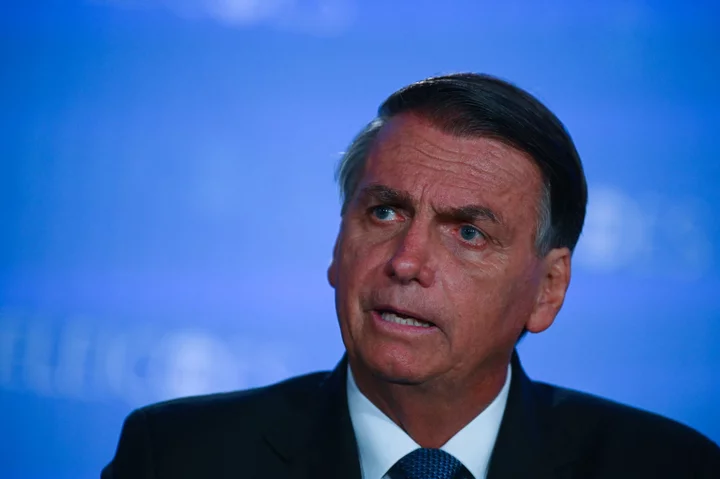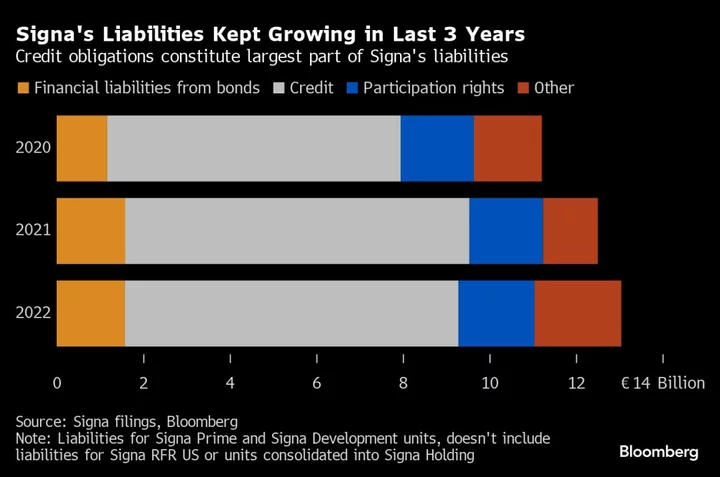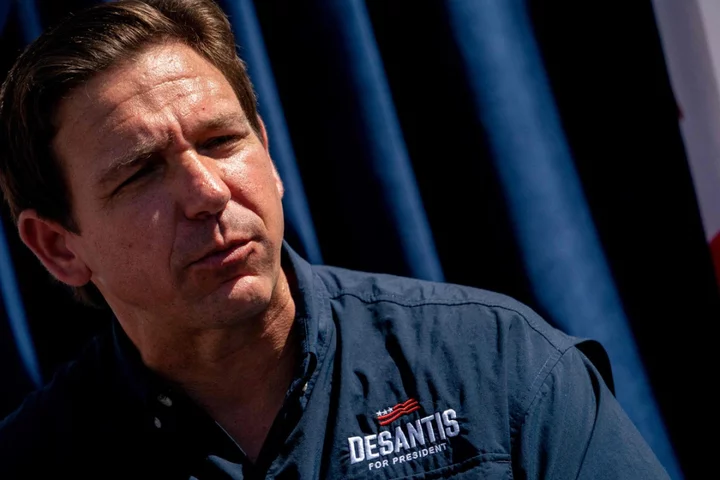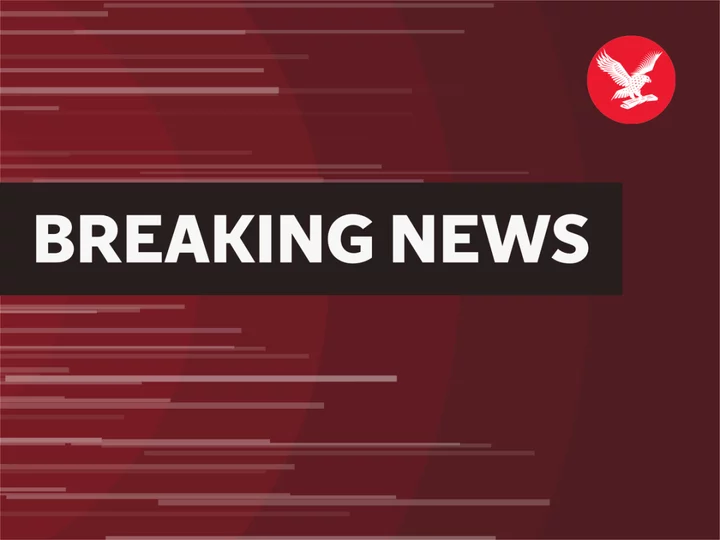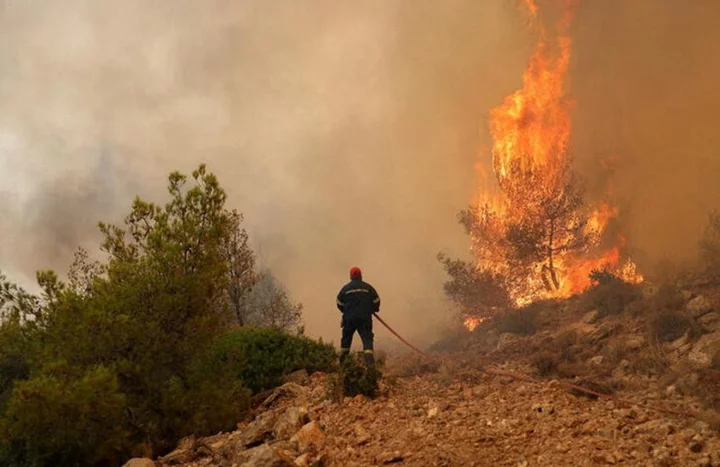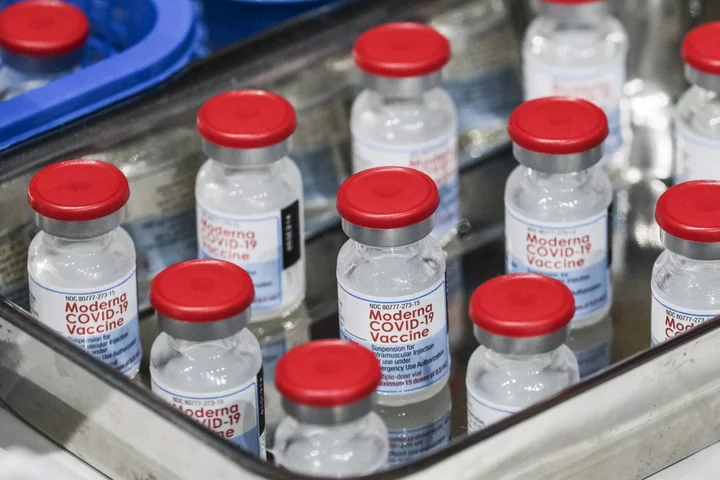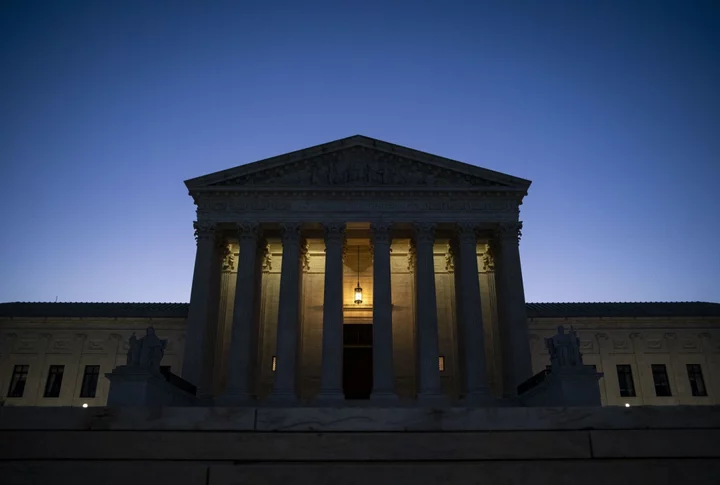Jair Bolsonaro’s political future is on the line as a trial begins over charges he abused the power of Brazil’s highest office by making false election claims.
A seven-judge panel in Brasilia will hear evidence about Bolsonaro’s actions in a series of sessions that start Thursday. The allegations stem from the ex-president’s decision to convene dozens of foreign diplomats for a meeting at which he insisted that Brazil’s electronic voting system was vulnerable to fraud.
The case is the first of 15 that Bolsonaro will face in the country’s electoral court, a result of his frequent claims that voting was rigged against him. Those assertions helped feed anger that ultimately resulted in riots in the nation’s capital last year. If found guilty, the man who served as president from 2019 to 2022 could be banned from office for eight years — potentially ruling him out of the next two elections.
Deliberations could take days — or even months if a member of the panel requests more time. But a guilty verdict and ban from office could lead to another seismic shift in Brazilian politics if it withstands appeals.
Bolsonaro remains a hugely popular figure despite his narrow defeat to leftist President Luiz Inacio Lula Da Silva, whose own political ban was overturned before last year’s election. The conservative firebrand received 49.1% of ballots and helped his party win the largest number of seats in the lower house, results that generated expectations that he would spearhead the opposition to Lula — and perhaps seek to run for president or another office in the future.
Read More: Bolsonaro Returns to Brazil to Lead Opposition Against Lula
“I would not want to lose my political rights,” Bolsonaro told reporters Wednesday in Brasilia. “I don’t know if I’ll be a candidate for mayor or city council next year. Or, if in the future, I’ll run for senator or president. To be a candidate, I have to maintain my political rights.”
Electoral Claims
In July 2022, Bolsonaro called ambassadors to the presidential palace, where he repeated debunked claims about Brazil’s electronic voting system. A rival political party accused him of using the speech to undermine faith in the election just three months before the vote.
Bolsonaro, a former army captain who molded himself after Donald Trump, has for years spread conspiracy theories about vote rigging and the electoral system. Bolsonaro denies involvement in the riots that erupted on Jan. 8, when his supporters ransacked key government buildings in Brasilia to protest what they believed was a stolen election.
But seven months after leaving office, he is staring down the possibility of far greater consequences than Trump, who is vying for next year’s Republican nomination despite two indictments and other ongoing investigations.
Read more: Bolsonaro Testifies as Police Close In on His Inner Circle
The clear evidence of alleged offenses has allowed the trial to move quickly, said Silvana Batini, an electoral law professor at the Getulio Vargas Foundation, or FGV, in Rio de Janeiro.
“It is simply a matter of collecting some details that are public and notorious,” she said.
Neither a spokesperson for Bolsonaro nor the lawyer representing him in the case responded to requests for comment. His party has said the meeting was a government event, not a campaign stop. Bolsonaro on Wednesday characterized the meeting as a foreign policy matter.
The trial is slated to take place over three sessions on June 22, 27 and 29, before a monthlong legislative recess begins July 1. While a decision could conceivably come within hours, it is also possible a judge could delay the vote for as long as 90 days to further review the evidence.
Legal Woes
Whatever the court ultimately decides, Bolsonaro’s legal woes are far from over. His cases before the electoral court include accusations that he abused his economic power by pushing a multi-billion dollar aid package through congress in an effort to sway voters. A guilty verdict in any of them could result in an eight-year ban from public office, legal experts say.
Bolsonaro is also facing legal probes over potential crimes that occurred during and after his presidency. The alleged offenses include failing to declare millions of dollars worth of gifts he received while serving as president, falsifying Covid-19 vaccination records, as well as his role in the incitement of the Jan. 8 riots.
He says he is innocent in each instance. But since returning home from a three-month, post-election vacation in Florida, the cases against him have escalated quickly. Bolsonaro has testified before authorities three times this year, and police have raided his home and arrested close allies.
Read more: Bolsonaro’s Brawl With a Top Justice Tests Brazil’s Democracy
“People are on top of me with a magnifying glass,” Bolsonaro told the magazine Veja last month. “I expected some of this, but not in this way. It’s humiliating.”
The outspoken leader has remained uncharacteristically absent from the public eye since his return, holding no political rallies and giving few interviews.
“Bolsonaro needs time to forget what he did,” said Christian Lynch, a political scientist at the State University of Rio de Janeiro. “But the majority of the court does not want to give it to him.”
While a guilty ruling would immediately deem Bolsonaro ineligible to seek office, he could appeal to Brazil’s Supreme Court. Regardless of the outcome, the decision is unlikely to mark the end of Bolsonaro or his movement, said Oliver Stuenkel, a international relations professor at the FGV in Sao Paulo.
Lula’s ban from the 2018 election due to a corruption conviction opened the door for Bolsonaro’s longshot rise from the backbench of Brazil’s congress to the presidency. But the Supreme Court ultimately annulled his convictions on grounds that the lower court that had tried him lacked jurisdiction over his case, allowing the leftist to run again last year.
“This is not going to be last chapter,” Stuenkel said. “There are so many precedents to give Bolsonaro hope.’”
--With assistance from Daniel Carvalho and Guilherme Bento.

